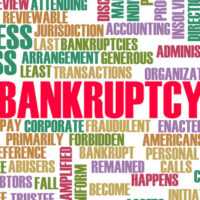Steps in a Chapter 7 Student Loan Bankruptcy Case

Debtors throughout Florida have entered back into student loan repayment, and many are struggling with debt. Even with revised income-based repayment options, debtors are still finding it difficult — and often impossible — to make ends meet with an added monthly student loan payment. For debtors who have been feeling overwhelmed by student loan debt, bankruptcy could now be an option. Although you might have read or heard the myth that student loan debt cannot be discharged in bankruptcy, our West Palm Beach bankruptcy attorneys want to make clear that the idea is indeed a myth. While student loans were difficult to discharge in bankruptcy in the past, it was not an impossible task. And now, the process has become significantly easier with new guidance from the U.S. Department of Justice (DOJ). In light of the foregoing, most individuals will not qualify for a discharge because the filer must still need to show that repayment will place an undue hardship on them
If you are planning to file for Chapter 7 bankruptcy and to ask the court to discharge your student loan debt, what steps should you expect to take? Consider the following information from our lawyers.
Determine Your Eligibility for Chapter 7 Bankruptcy
First, you will want to determine your eligibility for Chapter 7 bankruptcy. As an individual, you will need to determine if your income and assets are low enough to pass the “means test.”
Talk to a Lawyer About Your Student Loan History and the Undue Hardship Requirement
Next, it is essential to discuss your student loan history with a bankruptcy lawyer to determine whether you are likely to meet the “undue hardship requirement”, meaning that continuing to pay your student loans would impose an undue hardship on you. There are three major facts taken into consideration to determine whether you meet the undue hardship requirement:
- Present ability to pay student loans;
- Future ability to pay student loans; and
- Good faith efforts to pay or manage student loan debt in the past.
Complete a Pre-Bankruptcy Credit Counseling Course
If you are eligible for Chapter 7 and your lawyer thinks you may also be eligible to have your student loans discharged, you should complete the required pre-bankruptcy credit counseling course.
File a Chapter 7 Bankruptcy Petition
Next, file your Chapter 7 bankruptcy petition and any required documentation.
File an Adversary Proceeding
Adversary proceedings are not required in all bankruptcy cases, but they are required in cases where a debtor wants to have student loans discharged. Accordingly, you will need to file an adversary proceeding.
Complete the Attestation Form
The majority of the evidence used in the adversary proceeding to determine whether your student loan debt can be discharged will be supplied in a new “Attestation Form,” based on the new guidance from the DOJ. This makes the process easier, quicker, less expensive, and much more streamlined. Then, a DOJ attorney will evaluate the information in your Attestation Form to recommend whether your student loans should be discharged.
File Any Remaining Documents, Motions, or Objections
You will need to file any remaining documents, and handle any motions or objections.
Complete a Debtor Education Course
Then, you will need to complete a second course known as a debtor education course prior to a discharge.
Have Your Student Loan Debt (and Other Eligible Debts) Discharged
Finally, you may be eligible to have your student loan debt, along with any other eligible debts, discharged.
Contact a West Palm Beach Bankruptcy Lawyer for Assistance
Are you considering a Chapter 7 bankruptcy filing to have your loans discharged? It is possible to discharge student loan debt in both Chapter 7 and Chapter 13 bankruptcy cases, and an experienced West Palm Beach bankruptcy attorney at Kelley, Fulton, Kaplan & Eller can assist you. Contact us today to find out more about the work we do with consumers who are struggling with student loan debt and the ways we can help.
Sources:
justice.gov/d9/pages/attachments/2022/11/17/student_loan_discharge_guidance_-_fact_sheet_0.pdf
law.cornell.edu/uscode/text/11



